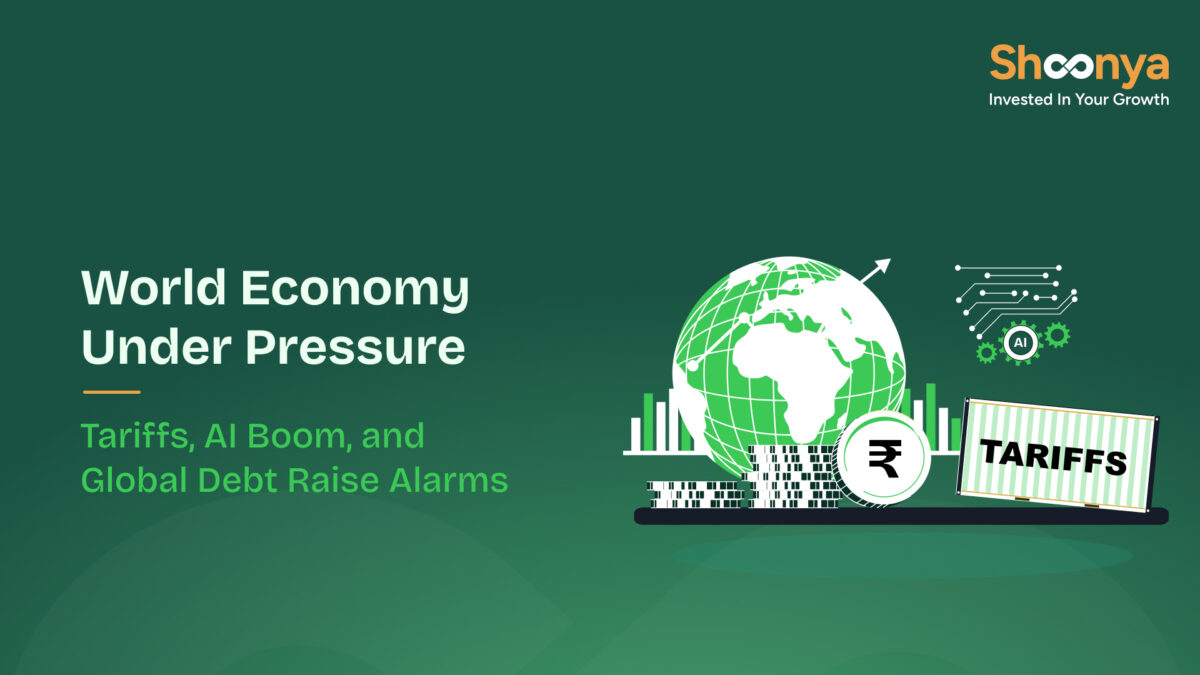World Economy Faces New Risks from Tariffs, AI Boom, and Record Debt

The world economy is entering a new phase of uncertainty, driven by the risk of tariffs, a potential AI investment bubble, and rising government debt. Global leaders at the IMF and World Bank meetings in Washington are discussing how to maintain growth and stability amid these challenges.
Tariffs and Their Impact on the Economy
US President Donald Trump has announced plans to impose a 100 percent tariff on Chinese goods starting November 1. The move has reignited trade tensions between the world’s two largest economies.
So far, American consumers have kept spending and businesses have absorbed higher costs, helping the global economy stay resilient. But economists warn that these conditions may not last.
If supply chains continue to weaken and prices keep rising, the tariffs’ impact on the economy could deepen.
According to the World Trade Organization, global trade growth is expected to slow significantly, declining from 2.4 percent this year to 0.5 percent in 2026. Export-dependent regions such as Asia and Europe could face delayed but significant slowdowns.
Forecasts from Bloomberg Economics show global growth moderating to 3.2 percent in 2025 and 2.9 percent in 2026, as trade pressures begin to bite.
AI Growth and Market Fragility
Artificial Intelligence has become a major growth engine for the largest economy in the world, with record investments in data centers and AI infrastructure lifting US stock markets. The S&P 500 has gained more than 30 percent since April, powered by optimism around technology and automation.
Yet economists are warning of a potential AI investment bubble. The IMF has noted that market valuations now resemble those seen before the dot-com crash. A sudden correction in tech stocks could tighten global financial conditions and weigh on developing economies.
Analysts expect that a slowdown in the US tech sector could drag world economy risks higher, lowering global growth to around 2 percent in 2026.
Rising Global Debt
According to the Institute of International Finance, global debt has surged to 338 trillion dollars, an increase of 21 trillion in just six months. As growth slows and borrowing costs rise, worries over fiscal sustainability are returning. To prevent another crisis, governments are focusing on targeted spending, sustainable financing, and debt restructuring.
The Road Ahead
Despite short-term resilience, the world economy risks losing momentum as tariffs take effect, AI valuations cool, and debt costs climb.
The US economy remains strong for now, but experts believe that these overlapping pressures could slow consumption and investment globally.
At the IMF and World Bank meetings, policymakers are emphasizing one message: the next decade of growth must be smarter, steadier, and more sustainable.
Source: MoneyControl
Disclaimer: Investments in the securities market are subject to market risks; read all the related documents carefully before investing.








